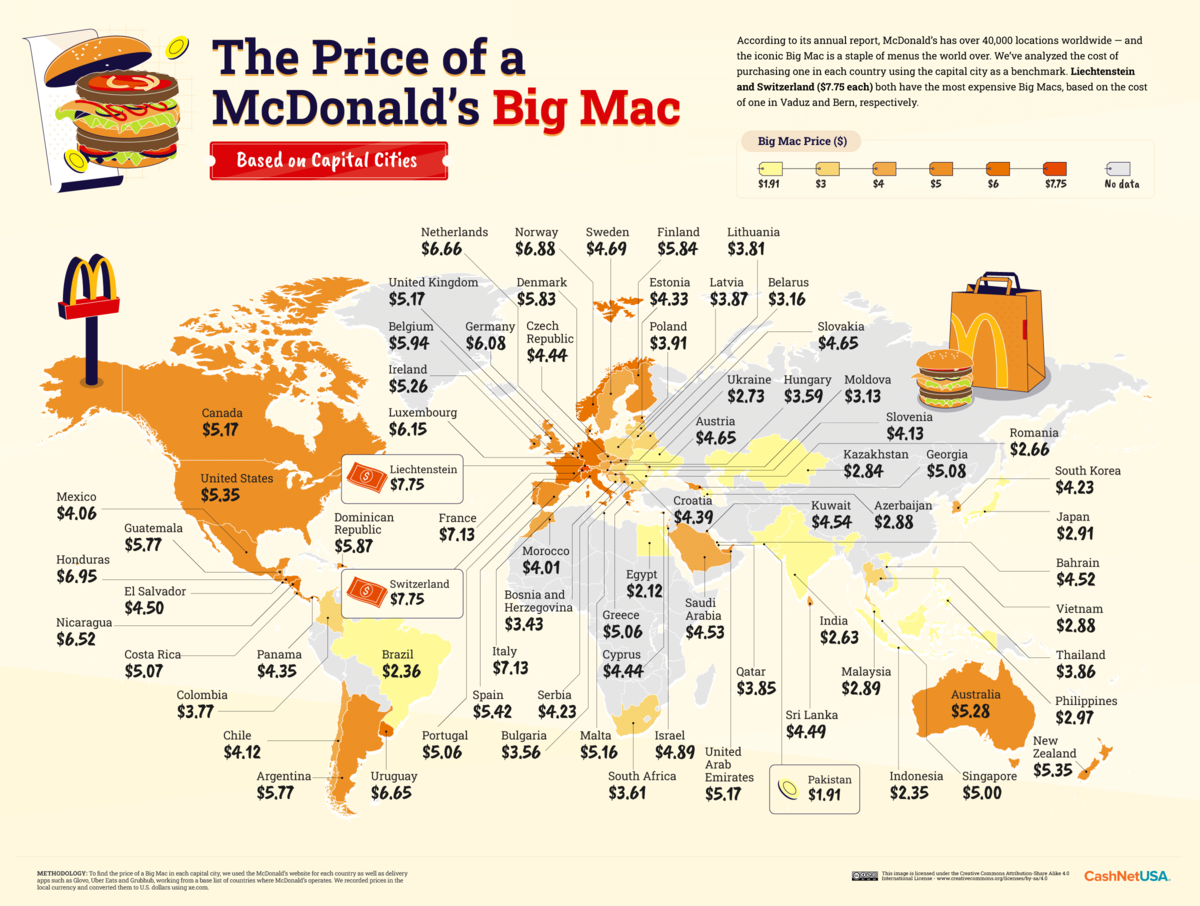The Big Mac index was introduced in
The Economist in September 1986 by Pam Woodall
[2] as a semi-humorous illustration of PPP and has been published by that paper annually since then. Although the Big Mac Index was not intended to be a legitimate tool for exchange rate evaluation, it is now globally recognised and featured in many academic textbooks and reports.
[3] The index also gave rise to the word
burgernomics.[4]
The theory underpinning the Big Mac index stems from the concept of PPP, which states that the exchange rate between two currencies should equalize the prices charged for an identical basket of goods.
[5] However, in reality, sourcing an identical basket of goods in every country provides a complex challenge. According to the Organisation for Economic Co-operation and Development (OECD), over “3,000 consumer goods and services, 30 occupations in government, 200 types of equipment goods and about 15 construction projects” are included in the current PPP calculations.
[6] In effort to simplify this important economic concept, The Economist proposed that a single McDonald’s Big Mac could be used instead of a basket of goods. A McDonald’s Big Mac was chosen because of the prevalence of the fast food chain worldwide, and because the sandwich remains largely the same across all countries.
[7] Although a single sandwich may seem overly simplistic for PPP theory, the price of a Big Mac is derived from the culmination of “many local economic factors, such as the price of the ingredients, local wages, or how much it costs to put up billboards and buy TV ads”.
[8] As a result, the Big Mac index provides a “reasonable measure of real-world purchasing power”.
[8]

